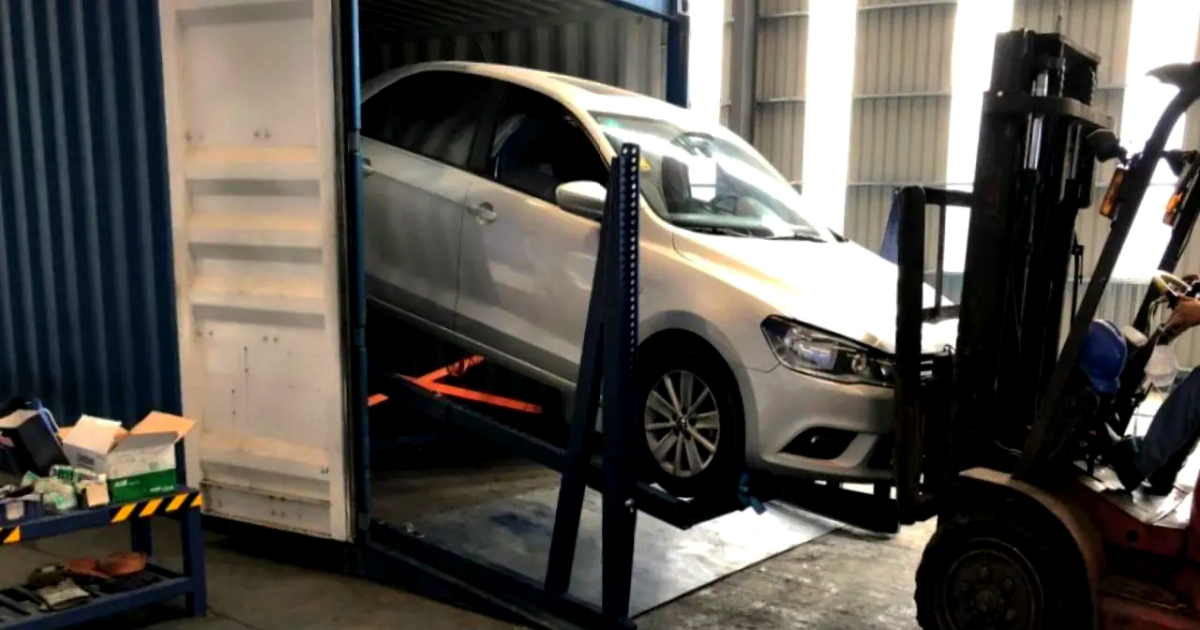
Decades of public transport crises in Cuba, which have worsened in recent years, prompted the "continuity" government led by Miguel Díaz-Canel to lift the historic restrictions imposed by the Cuban regime on the importation of automobiles.
After the U.S. State Department authorized the importation of automobiles for micro, small, and medium-sized enterprises (Mipymes), the Cuban regime updated its policy on the marketing of vehicles in Cuba, lifting restrictions on imports by "individuals who work abroad in state missions, such as diplomats and collaborators."
These officials of the Cuban regime "will be able to import directly, and only once per family unit, a new or used car (up to a maximum of 10 years from the date of manufacture), electric, combustion, or hybrid, of an economic or medium type."
This was explained by Cuba's Minister of Transportation, Eduardo Rodríguez Dávila, in a post on his social media where he detailed the requirements that the beneficiaries of the new policy must meet.
"Among the requirements that beneficiaries of this measure must meet are: to work abroad continuously for a minimum of three years, to have a favorable performance evaluation, and they will also have to cover all expenses from their income, as stipulated," explained the minister.
Officials who meet these requirements must pay the following import tariffs once their vehicles arrive on the Island: 100 dollars for electric cars, 200 for hybrids, and 300 for combustion engine vehicles. Additionally, they must pay the corresponding customs service fee in convertible currency, which will be valued at 8 dollars.
"Additionally, they will be able to exchange the import duty for the purchase of a car in Cuba at one of the authorized dealers, with a 50% benefit in the payment of taxes in convertible currency," added Rodríguez Dávila.
Finally, the Ministry of Transport (MITRANS) stated that it will "evaluate the alternatives for those employees who work in countries where driving is on the right side, considering that they will not be able to drive in Cuba, so it would be necessary to acquire the vehicle in a third country."
In February 2023, the Cuban government announced new measures for the sale and importation of motor vehicles, trailers, and semi-trailers, amid the transportation and energy crisis that is still affecting the country.
In this regard, Rodríguez Dávila announced Decree 83/2023 "On the transfer of ownership of motor vehicles, trailers, and semi-trailers, their commercialization, and importation," which authorizes wholesale sales in freely convertible currency (MLC) of new and used motor vehicles to all Cuban and foreign legal entities.
In contrast to the economic crisis affecting Cuba, the streets of the Island showcase new luxury vehicles making their way through the urban landscape, imported by micro, small, and medium-sized enterprises (Mipymes) from the United States.
Among the most commonly seen car brands in Cuban cities are Mercedes-Benz, GMC, Range Rover, BMW, Toyota, Kia, and even a few stylish Mini Coopers.
A report from the U.S.-Cuba Economic and Trade Council (USCTEC) revealed in May that Cuban imports of new and used vehicles (including motorcycles and spare parts) exceeded 20 million dollars over a span of 15 months.
In contrast, from January to December 2023, Cuban entrepreneurs imported vehicles and parts from the United States worth nearly 10 million dollars. Of that amount, new cars accounted for an expenditure of only 357,442 dollars.
What do you think?
COMMENTFiled under: